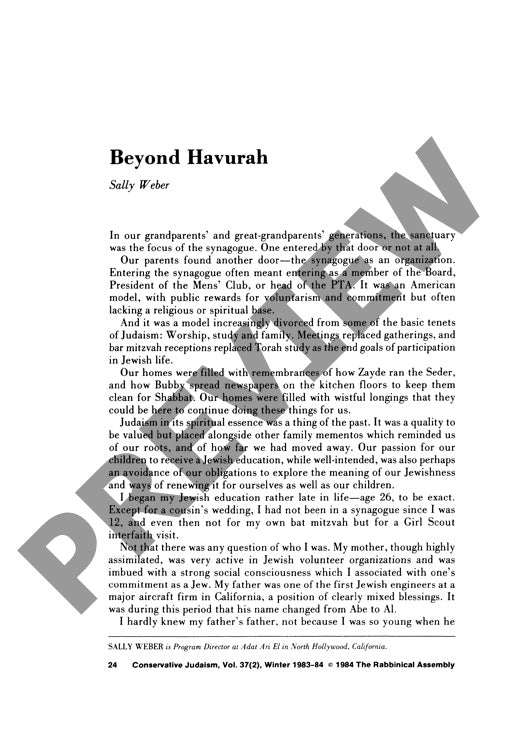Beyond Havurah
Couldn't load pickup availability
American Jews' search for authentic religious connection has evolved dramatically across three generations, moving from traditional sanctuary worship to organizational synagogue life and ultimately spawning the innovative havurah movement. As post-war Jewish Americans adapted to mainstream culture, many became "orphans in history," disconnected from meaningful religious practices yet yearning for spiritual authenticity. Through personal narrative and generational analysis, Weber chronicles both her own journey from religious alienation to active Jewish engagement and the broader communal shift toward independent havurah communities. Traditional synagogue structures often failed to meet the spiritual and communal needs of searching Jews, catalyzing the emergence of alternative religious communities emphasizing fellowship, experimentation, and personal growth. The havurah movement represents a "new entrance to the synagogue," offering pathways for Jews to reconnect with their heritage while creating meaningful contemporary practices. The research, grounded in autobiographical methodology, reveals that American Jews actively seek communities that jointly recognize spiritual and communal needs, suggesting that successful Jewish institutions must facilitate both the retrieval of Jewish heritage and the creation of personally meaningful religious experiences in the present.

More Information
-
Physical Description
-
Publication Information
Published 1983-1984
ISBN
-
Publication Credits
Sally Weber

